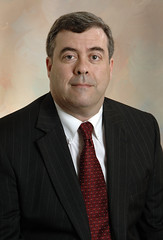Does St. Augustine anticipate Einstein's notion of the relative nature of space-time?
From City of God, XI.5-6:
Chapter 5.— That We Ought Not to Seek to Comprehend the Infinite Ages of Time Before the World, Nor the Infinite Realms of Space.
Next, we must see what reply can be made to those who agree that God is the Creator of the world, but have difficulties about the time of its creation, and what reply, also, they can make to difficulties we might raise about the place of its creation.
For, as they demand why the world was created then and no sooner, we may ask why it was created just here where it is, and not elsewhere.
For if they imagine infinite spaces of time before the world, during which God could not have been idle, in like manner they may conceive outside the world infinite realms of space, in which, if any one says that the Omnipotent cannot hold His hand from working, will it not follow that they must adopt Epicurus' dream of innumerable worlds?
With this difference only, that he asserts that they are formed and destroyed by the fortuitous movements of atoms, while they will hold that they are made by God's hand, if they maintain that, throughout the boundless immensity of space, stretching interminably in every direction round the world, God cannot rest, and that the worlds which they suppose Him to make cannot be destroyed.
For here the question is with those who, with ourselves, believe that God is spiritual, and the Creator of all existences but Himself. As for others, it is a condescension to dispute with them on a religious question, for they have acquired a reputation only among men who pay divine honors to a number of gods, and have become conspicuous among the other philosophers for no other reason than that, though they are still far from the truth, they are near it in comparison with the rest.
While these, then, neither confine in any place, nor limit, nor distribute the divine substance, but, as is worthy of God, own it to be wholly though spiritually present everywhere, will they perchance say that this substance is absent from such immense spaces outside the world, and is occupied in one only, (and that a very little one compared with the infinity beyond), the one, namely, in which is the world?
I think they will not proceed to this absurdity. Since they maintain that there is but one world, of vast material bulk, indeed, yet finite, and in its own determinate position, and that this was made by the working of God, let them give the same account of God's resting in the infinite times before the world as they give of His resting in the infinite spaces outside of it.
And as it does not follow that God set the world in the very spot it occupies and no other by accident rather than by divine reason, although no human reason can comprehend why it was so set, and though there was no merit in the spot chosen to give it the precedence of infinite others, so neither does it follow that we should suppose that God was guided by chance when He created the world in that and no earlier time, although previous times had been running by during an infinite past, and though there was no difference by which one time could be chosen in preference to another.
But if they say that the thoughts of men are idle when they conceive infinite places, since there is no place beside the world, we reply that, by the same showing, it is vain to conceive of the past times of God's rest, since there is no time before the world.
Chapter 6.— That the World and Time Had Both One Beginning, and the One Did Not Anticipate the Other.
For if eternity and time are rightly distinguished by this, that time does not exist without some movement and transition, while in eternity there is no change, who does not see that there could have been no time had not some creature been made, which by some motion could give birth to change—the various parts of which motion and change, as they cannot be simultaneous, succeed one another—and thus, in these shorter or longer intervals of duration, time would begin?
Since then, God, in whose eternity is no change at all, is the Creator and Ordainer of time, I do not see how He can be said to have created the world after spaces of time had elapsed, unless it be said that prior to the world there was some creature by whose movement time could pass.
And if the sacred and infallible Scriptures say that in the beginning God created the heavens and the earth, in order that it may be understood that He had made nothing previously—for if He had made anything before the rest, this thing would rather be said to have been made in the beginning,— then assuredly the world was made, not in time, but simultaneously with time. For that which is made in time is made both after and before some time,— after that which is past, before that which is future.
But none could then be past, for there was no creature by whose movements its duration could be measured. But simultaneously with time the world was made, if in the world's creation change and motion were created , as seems evident from the order of the first six or seven days.
For in these days the morning and evening are counted, until, on the sixth day, all things which God then made were finished, and on the seventh the rest of God was mysteriously and sublimely signalized. What kind of days these were it is extremely difficult, or perhaps impossible for us to conceive, and how much more to say!
